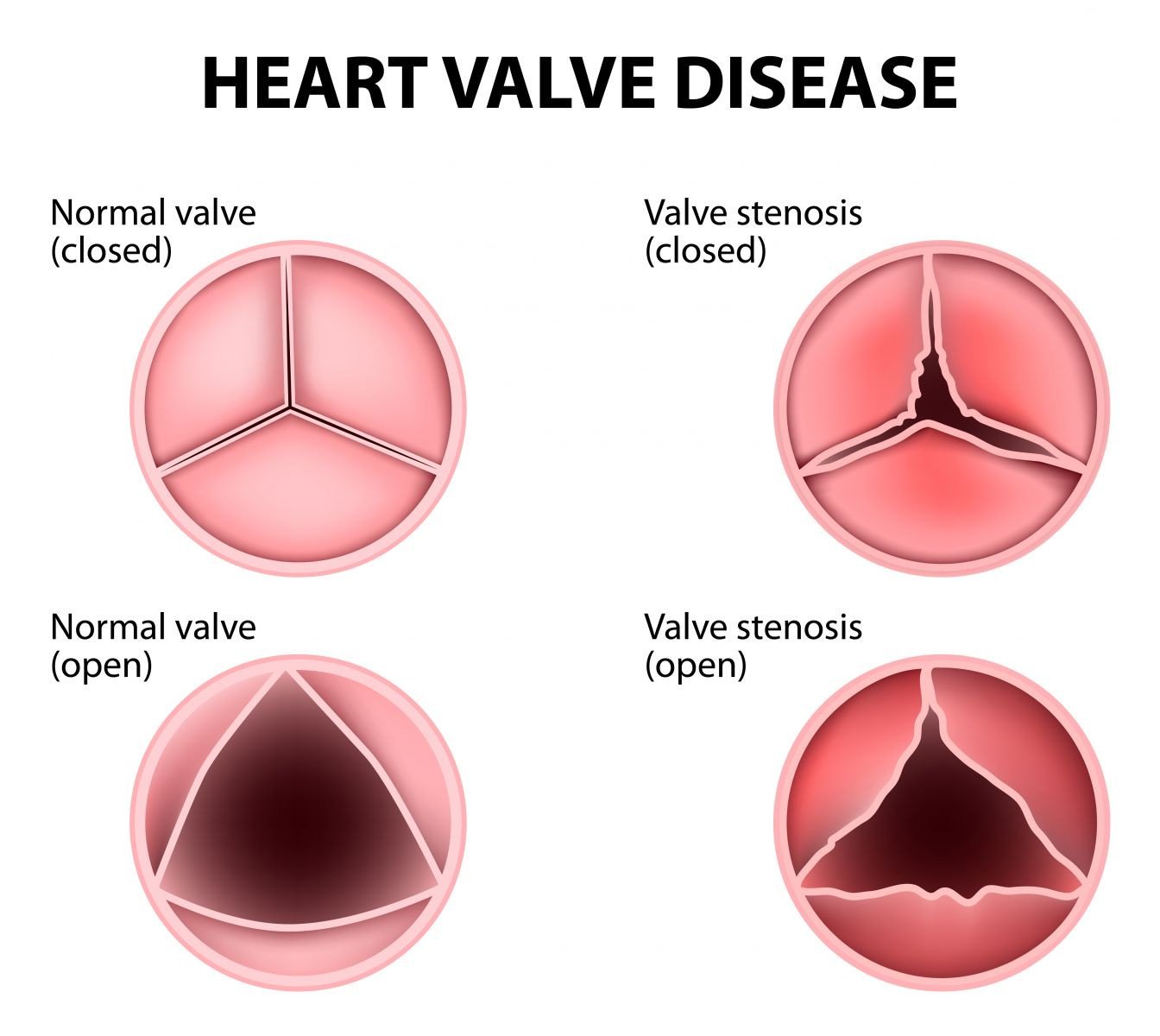Heart Murmur
Medically reviewed by Drugs.com. Last updated on Jan 2, 2024.
What is a Heart Murmur?

A heart murmur is a sound made by turbulent blood flow within the heart. Your doctor hears this sound with a stethoscope. A murmur can occur in a normal heart. Or it may indicate some problem within the heart.
Most often, the turbulence is normal. And the sound is called a benign flow murmur. It happens when blood flows faster through the heart, for example in a person who is anxious, has just finished exercising, has a high fever or has severe anemia. About 10% of adults and 30% of children (most between the ages of 3 and 7) have a harmless murmur produced by a normal heart. This type of murmur is also called an innocent murmur.
A heart murmur may indicate a structural abnormality of a heart valve or heart chamber, or it may be due to an abnormal connection between two parts of the heart. Some abnormalities of the heart that create heart murmurs include:
- A tight or leaky heart valve – The heart has four valves: the aortic, mitral, tricuspid and pulmonary valves. A heart murmur can be heard if any one of these valves has a narrowing of the valve opening (stenosis) that interferes with the outflow of blood or a valve leak (regurgitation or insufficiency) that causes a backflow of blood.

- Mitral valve prolapse – In this condition, the leaflets of the mitral valve fail to close properly, allowing blood to leak back from the heart's lower left chamber (the left ventricle) to the upper left chamber (the left atrium).

-
Congenital heart problems – Congenital means the disorder was present at birth. Congenital heart problems include:
- Congenital heart problems – Congenital means the disorder was present at birth. Congenital heart problems include:
- Septal defects – These are also known as holes in the heart. They are abnormal openings in the heart's septum (the wall between the heart's left and right sides).
- Patent ductus arteriosus – Before birth, the channel between the pulmonary artery and the aorta (called the ductus arteriosus) allows blood to bypass the lungs because the fetus is not breathing. Once a child is born and his or her lungs are functioning, the ductus arteriosus normally closes. Patent ductus arteriosus occurs when blood flow through the ductus arteriosus continues after birth.
- Endocarditis – Endocarditis is an inflammation and infection of the heart valves and endocardium, the inner lining of the heart chambers. A heart valve infection can cause a heart murmur by causing blood to leak backwards, or the infected valve can partially obstruct blood flow.
- Cardiac myxoma – A cardiac myxoma is a rare, benign (noncancerous) tumor that can grow inside the heart and partially obstruct blood flow.
- Asymmetric septal hypertrophy – Asymmetric septal hypertrophy is an abnormal thickening of the heart muscle inside the lower left chamber (left ventricle) of the heart. The thickened muscle makes the outflow passage narrow just below the aortic valve. This condition, also called idiopathic hypertrophic subaortic stenosis, is seen in people with hypertrophic cardiomyopathy.
Symptoms
An innocent murmur does not cause any symptoms. For other types of heart murmurs, symptoms vary depending on the cause. In general, when a heart murmur significantly interferes with the heart's ability to pump blood, you can experience one or more of the following symptoms:
- Shortness of breath
- Light-headedness
- Episodes of rapid heartbeat
- Chest pain
- Decreased tolerance for physical exertion and, in later stages, symptoms of heart failure
Diagnosis
Many murmurs are discovered unexpectedly when a doctor listens to someone's heart with a stethoscope during a routine physical exam. In other cases, when someone is having symptoms of heart problems, the doctor will ask questions related to a specific type of heart ailment. For example, he or she may ask about a history of rheumatic fever because rheumatic fever during childhood can cause heart valve abnormalities later in life. Because endocarditis can follow intravenous drug use or certain medical or dental procedures, your doctor may ask about these risk factors. If the patient is an infant, the doctor will ask whether there is a family history of congenital heart problems.
Because specific heart problems are associated with specific types of murmurs, your doctor often will make a tentative diagnosis based on your medical history, symptoms and the murmur's distinctive sound and timing (whether the murmur occurs when the heart is pumping or resting). As part of your medical evaluation, your doctor may order diagnostic tests, which may include:
- Electrocardiography (EKG) – This painless procedure measures the electrical activity of the heart.
- Chest X-ray – This is used to check for an enlarged heart and for certain congenital abnormalities.
- Echocardiography – This noninvasive test uses sound waves to create an image of the heart's structure, including the structure of its valves.
- Doppler echocardiography – This test is similar to echocardiography, but it creates an image of the heart's blood flow patterns rather than its structure.
- Cardiac catheterization – In this test, a small, sterile tube called a catheter is guided into the heart to measure pressures and oxygen levels in the heart's chambers. A dye is injected through the catheter to produce an X-ray image of the heart's internal structure and blood flow patterns.
- Blood tests – Blood tests are used to check for infection in people with suspected endocarditis or pericarditis.
Expected Duration
When an innocent heart murmur is triggered by fever, anxiety or exertion, it can disappear after the condition that triggered it goes away. In healthy children with more constant innocent murmurs, the murmur often becomes softer as the child grows and can eventually disappear completely.
When a murmur is caused by a heart problem, how long it lasts depends on the type of disorder. For example, some forms of endocarditis begin suddenly and get worse rapidly over a few days, while others cause milder symptoms over weeks or months. Murmurs caused by valve problems or congenital heart problems usually last throughout life, and in some cases, they can worsen over time.
Prevention
There is no way to prevent the congenital heart defects that cause some heart murmurs.
If you are at high risk of endocarditis, your doctor or dentist will prescribe special antibiotics before doing any medical or dental procedure during which bacteria could enter your blood and infect your heart. You also can help to prevent endocarditis by avoiding intravenous drug use.
You can prevent many heart-valve abnormalities by preventing rheumatic fever. To do this, take antibiotics exactly as prescribed whenever you have strep throat.
People who already have had one episode of rheumatic fever may need to take antibiotics for up to 10 years after the first attack to prevent the disease from returning.
Treatment
Innocent heart murmurs do not need to be treated. Other types of murmurs that do not cause any symptoms also may not require any treatment, although your doctor should monitor them regularly. When treatment is required, it varies depending on the cause of the murmur.
- A tight or leaky heart valve – Depending on the type of abnormality, angiotensin-converting enzyme (ACE) inhibitors, angiotensin receptor blockers and/or diuretics may be used to treat symptoms. Severe cases can be corrected surgically, often by replacing the diseased valve with an artificial one.
- Mitral valve prolapse – Most people with mitral prolapse don't have symptoms. Sometimes, people with palpitations are treated with beta-blockers (medications that reduce the heart's workload by slowing the heart rate and reducing the force of heart muscle contractions). In rare cases in which prolapse progresses to severe mitral regurgitation, the abnormal mitral valve will be repaired or replaced surgically.
- Congenital heart problems – Depending on the severity, congenital heart disease might need to be corrected surgically.
- Endocarditis – When endocarditis is caused by a bacterial infection, it usually is treated with several weeks of intravenous antibiotics. Sometimes, the infected heart valve must be replaced surgically.
- Cardiac myxoma – A cardiac myxoma is removed surgically.
When To Call a Professional
Call your doctor if you begin to experience:
-
Shortness of breath
-
Persistent light-headedness
-
Episodes of rapid or irregular heartbeat
-
Chest pain
Prognosis
In people with innocent heart murmurs, the prognosis is excellent. For people with other types of heart murmurs, the prognosis depends on the type of heart problem and its severity. In general, even when heart surgery is required, the prognosis is good.
Additional Info
National Heart, Lung, and Blood Institute (NHLBI)
https://www.nhlbi.nih.gov/
American Heart Association (AHA)
https://www.americanheart.org/
American College of Surgeons (ACS)
https://www.facs.org/
Learn more about Heart Murmur
Treatment options
Care guides
Further information
Always consult your healthcare provider to ensure the information displayed on this page applies to your personal circumstances.
